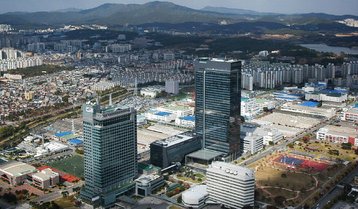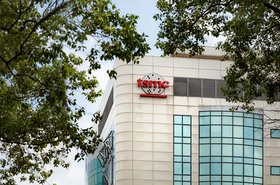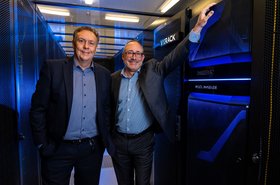Samsung Electronics has named Young Hyun Jun CEO of its Device Solutions Division to lead the company’s semiconductor business.
In a statement, Samsung said the move will allow the business unit to “strengthen its competitiveness amid an uncertain global business environment.”
Jun first joined the company in 2000 and has worked on the development of DRAM and Flash memory, before being made head of the Memory Business in 2014, CEO of Samsung Digital Inference in 2017, and head of the Future Business unit in 2024.
He now replaces Kyehyun Kyung, who will take over Jun’s role at the Future Business unit.
In his new role, Samsung said Jun is “expected to focus on finding new growth opportunities based on his experience leading the semiconductor business.”
At the end of April, Samsung Electronics reported a 993 percent increase in operating profit during Q1 2024, largely driven by a growing need and increase in price of DRAM and NAND flash memory chips, fuelled by the explosion in generative AI.
At the time, the company said that it anticipated the “continuous increase in the supply of AI servers and subsequent expansion of associated cloud services” would further boost demand for HBM in addition to conventional servers and storage solutions.
However, while the company is currently the largest global manufacturer of memory chips, its domestic rival SK Hynix is looking to close the gap.
In April, SK Hynix announced it was partnering with TSMC to start mass-producing HBM4 chips in 2025, a year earlier than Samsung. SK Hynix, which serves as the primary supplier of HBM to Nvidia for the chip designers’ GPUs, has since confirmed that its entire supply of HBM chips has sold out for this year and is almost sold out for 2025.
This week, Korean news outlet FN News reported that Samsung Foundry has made receiving chip orders from Nvidia a top priority, going as far as implementing an internal strategy, codenamed Nemo, which requires each department to prioritize orders from the chipmaker over existing work.
Last month, it was announced that Samsung Electronics would receive $6.4bn in direct funding to build a semiconductor cluster across a number of locations in Texas.
This includes two semiconductor foundries producing 4nm and 2nm chips; an advanced packaging facility for high memory bandwidth; a research and development facility in the city of Taylor, and the expansion of an existing Samsung site in Austin to support the production of fully depleted silicon-on-insulator (FD-SOI) process technologies.







